Social Awareness Teaching Resources
Help your students build social awareness skills with activities and printables, social skills worksheets and more SEL teaching resources created by teachers specifically for elementary and middle school students.
This collection is full of digital and printable activities created by the expert teachers of the Teach Starter team to help teachers as they work with students on being more socially aware, recognize social cues, understand social dynamics and treat the people around them with kindness and courtesy.
Each teaching resource in this social awareness teaching resource collection has undergone rigorous review by the Teach Starter team to ensure it's ready for the classroom ... and your students!
Curious about teaching social awareness and wondering how to build students' social skills? Read on for some tips from our expert teachers!
What Is Social Awareness? A Kid-Friendly Definition
Being socially aware is not something that comes naturally to every child, and explaining what social awareness means can be tough. Our teacher team has created this kid-friendly definition to help!
Social awareness is understanding how other people feel and what they need. When we are socially aware, we notice how others are doing, and we make an effort to be kind and helpful to them.
Social awareness also means paying attention to the rules and ways people behave in different situations.
Being socially aware means we are more sensitive to the feelings of people around us, and we can then use our social skills — such as the ability to be kind, to listen and to cooperate – to work with others. It means we can empathize with others, understand diverse perspectives and navigate social interactions effectively.
Social Awareness Examples for Kids
Now that you've explained the social awareness meaning, it helps to explore what it actually looks like when you put it into practice. Many of your students may have at least some skills already at hand — depending on the individual student and grade level.
A kindergartner, for example, may show empathy by giving a crying friend a hug or sharing a toy, but they're typically not yet able to understand that people have different perspectives.
So how can your students show they're socially aware? Let's look at some kid-friendly social awareness examples!
- Taking turns on the playground or at the water fountain.
- Sharing crayons or gluesticks with classmates.
- Making eye contact with friends when they're speaking.
- Paying attention when a teacher is speaking and not interrupting.
- Collaborating with classmates to complete a group assignment.
- Using conflict resolution skills to address issues with a friend.
- Offering to help the gym teacher put away the basketballs or helping the school librarian shelve the books that have been left out by other students.
What Is the Difference Between Self Awareness and Social Awareness?
We teach students both self awareness and social awareness in elementary and middle school, and the two relate to one another as important aspects of emotional intelligence.
But where social awareness is focused outward on the emotions, perspectives and needs of others, self awareness focuses inward on recognizing those concepts in oneself.
Social Awareness and Emotional Intelligence
Emotional intelligence is an umbrella term that involves a number of the core components of a social emotional learning curriculum — including self awareness, self management and relationship management, as well as social awareness.
So how does social awareness specifically tie back to emotional intelligence? Being emotionally intelligent involves not just recognizing emotions in one's self but in others — the basic component of social awareness for our students.
Take social dynamics, for example. Understanding the social dynamics at play in a particular situation is a big part of being socially aware. Recognizing group norms, cultural differences and power dynamics all help our students to avoid causing offense or discomfort in others. It's a great example of having the emotional intelligence required to navigate a situation!
- Free Plan
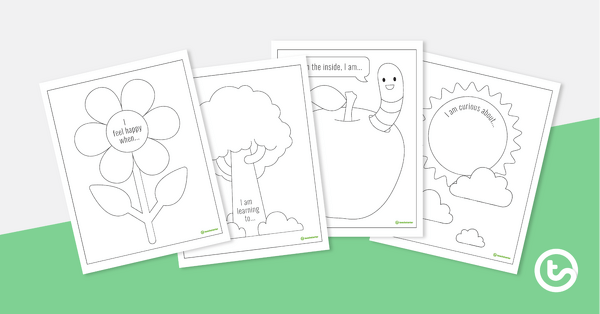
Nature-Inspired Gratitude Writing Prompt Sheets
A set of 5 nature-inspired gratitude prompt sheets.
- Plus Plan
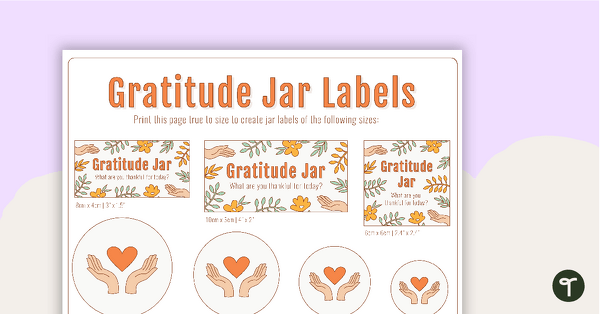
Gratitude Jar Cut and Assemble Kit
Printable labels, writing slips, and gratitude mini-posters to set up a class gratitude jar.
- Plus Plan
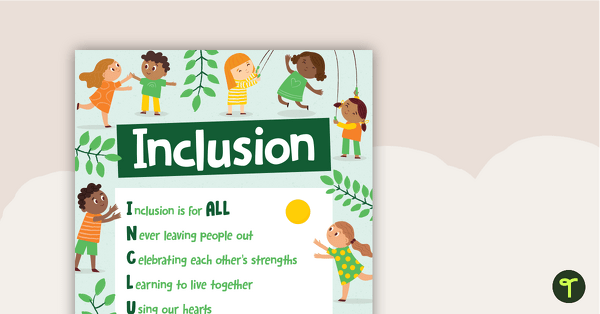
Inclusion Poster
A beautiful poster to spread the message that inclusion is for ALL.
- Plus Plan
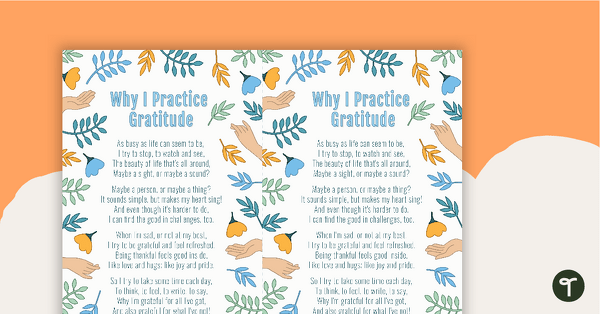
Gratitude Journal Poem
A poem that explains the purpose of a gratitude journal.
- Plus Plan
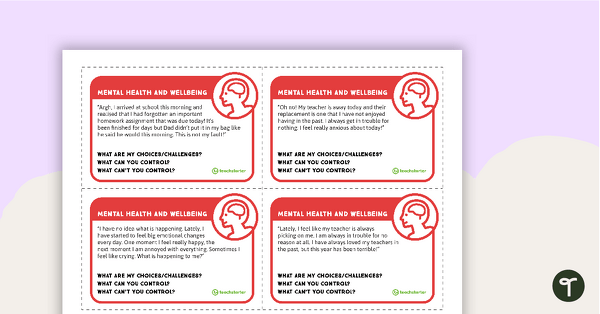
Social Strategies Task Cards
A teaching resource to help students strategize solutions to problems around mental health and social well being
- Plus Plan
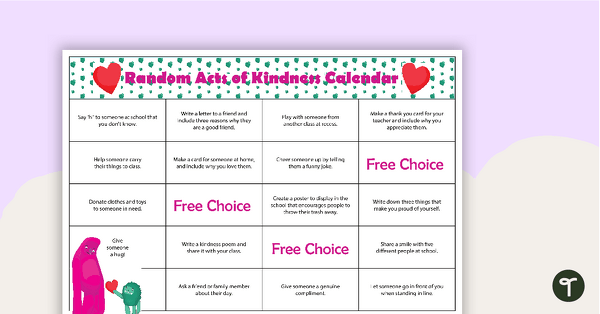
Random Acts of Kindness Calendar
16 random acts of kindness tasks for students to do for others.
- Free Plan
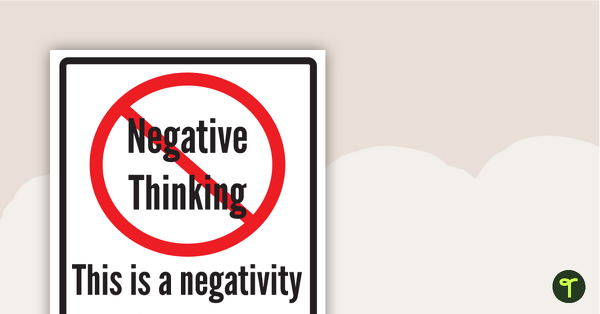
Negativity Free Zone Sign
Negativity Free Zone Sign.
- Plus Plan
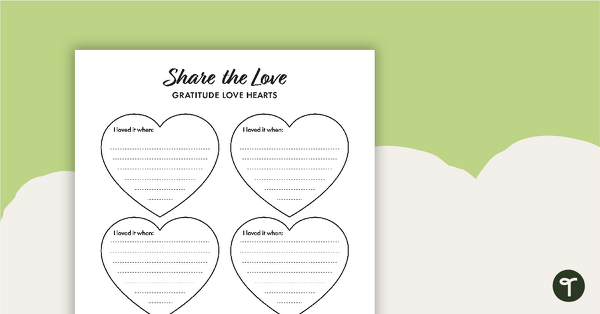
Share the Love - Gratitude Love Heart Template
Create a classroom display of gratitude and appreciation with this writing exercise.
- Plus Plan
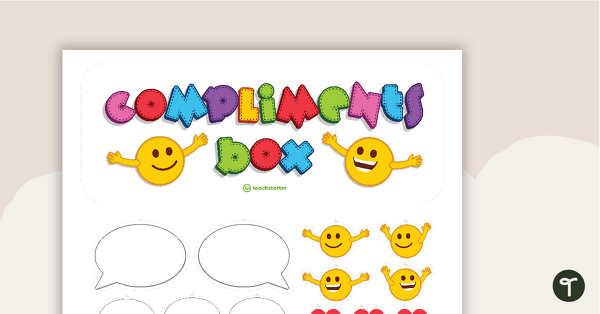
Compliment Box Decorations and Compliment Cards
Use these decorations and compliment cards to create your very own classroom compliments box.
- Plus Plan
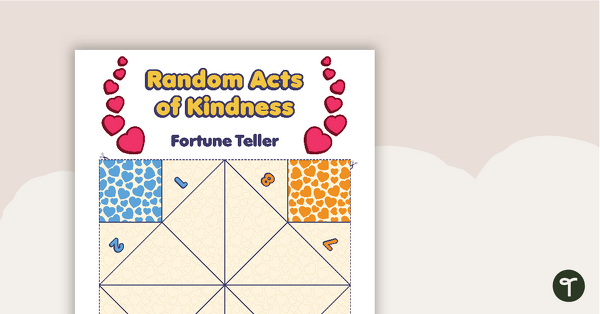
Random Acts of Kindness Paper Fortune Teller
Choosing random acts of kindness couldn't be more fun than with this paper fortune teller template!
- Free Plan
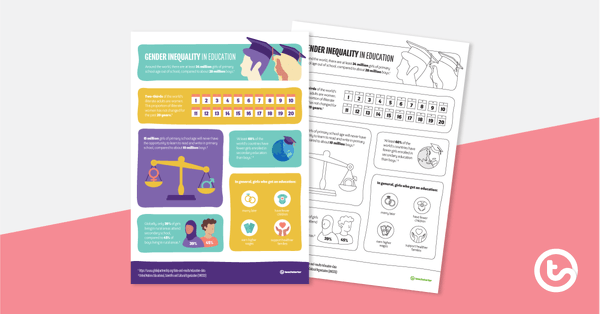
Gender Inequality in Education Infographic Poster
An infographic displaying important facts and statistics about gender inequality in education.
- Free Plan
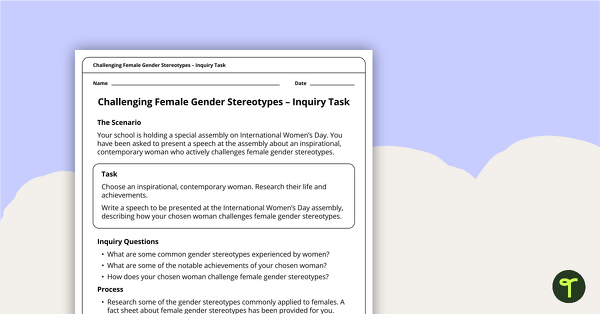
Challenging Female Gender Stereotypes Inquiry Task
An inquiry task to use in the classroom when learning about inspirational contemporary women.
- Free Plan
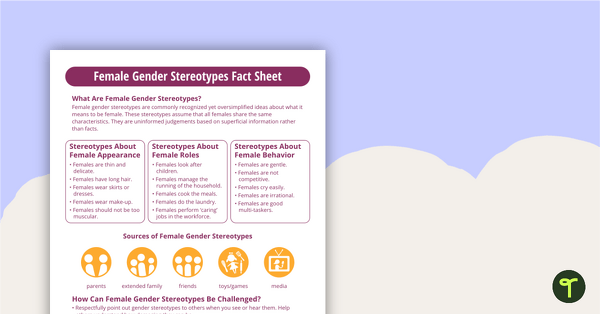
Female Gender Stereotypes Fact Sheet
A fact sheet providing an overview about female gender stereotypes.
- Plus Plan
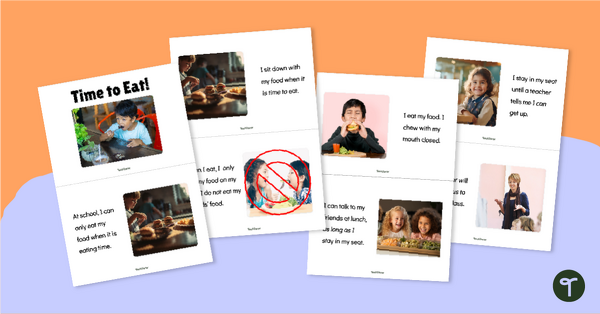
Time To Eat – Lunch Procedures Mini Book
Teach your students appropriate cafeteria rules and procedures with a printable Time to Eat Social Stories booklet.
- Plus Plan
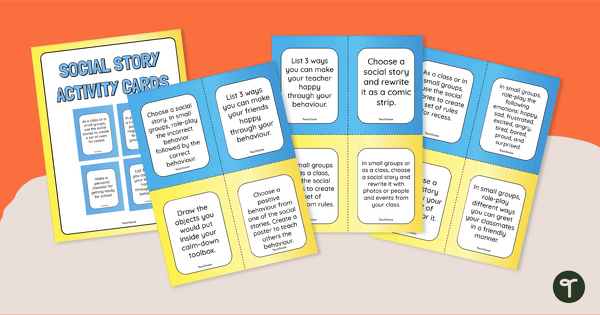
Social Stories - Activity Cards
Help your students build social skills and practice concepts learned within our social stories with a set of printable task cards.
- Plus Plan
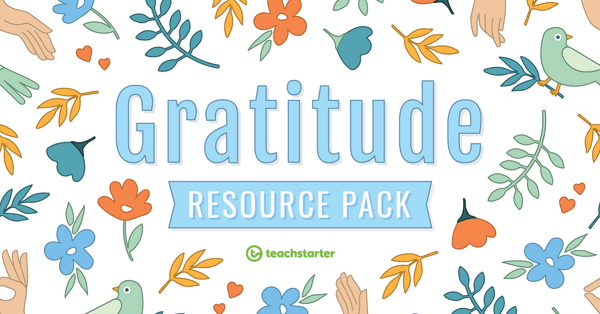
Gratitude Teaching Resource Pack
A collection of resources to use with students to practice gratitude.
- Plus Plan
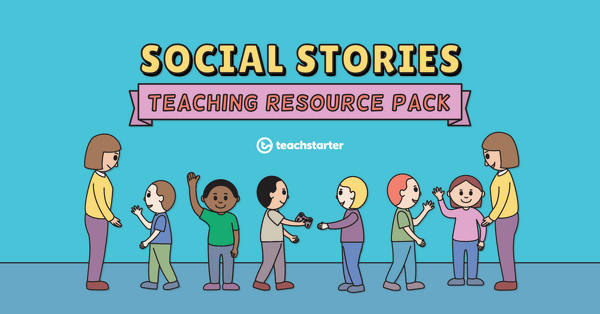
Social Stories Teaching Resource Pack
A collection of social story resources to use in the classroom when developing strategies and skills for a range of social situations.
- Plus Plan
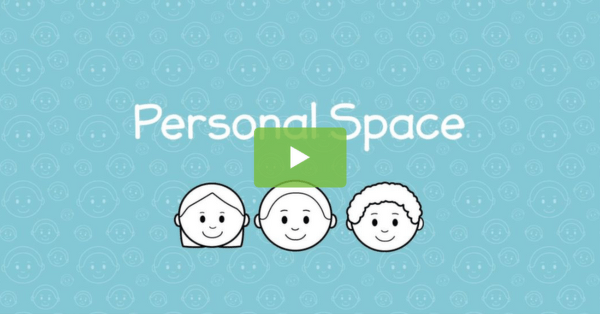
Personal Space – Social Story Video
This social story video reminds students to allow others to maintain some personal space.
- Plus Plan
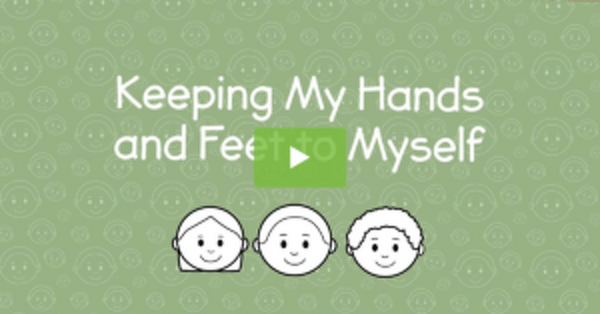
Keeping My Hands and Feet to Myself – Social Story Video
This social story video reminds students of the importance of keeping their hands and feet to themselves.
- Plus Plan
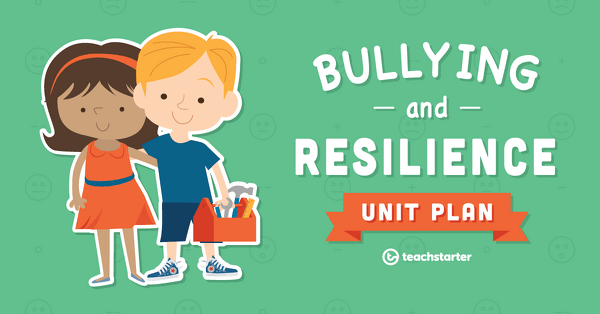
Bullying and Resilience
This Personal, Social and Community Health unit introduces five resilience strategies to help students deal positively and effectively with bullying.
- Plus Plan
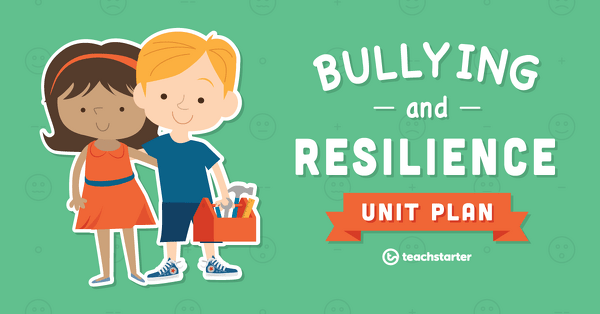
Helping Our School Community and Beyond
A 60 minute lesson in which students will share the resilience Tool Kit strategies with the school community and beyond.
- Plus Plan
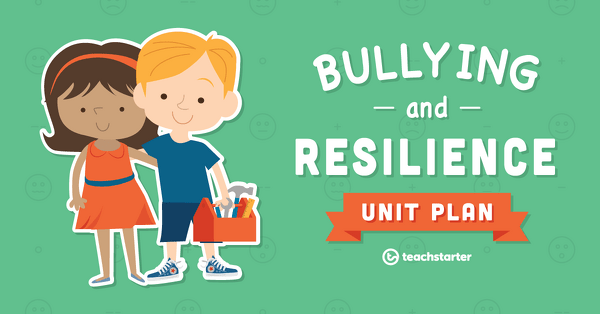
Applying Resilience Strategies
A 60 minute lesson in which students will identify the best resilience Tool Kit strategy to use in different bullying scenarios.
- Plus Plan
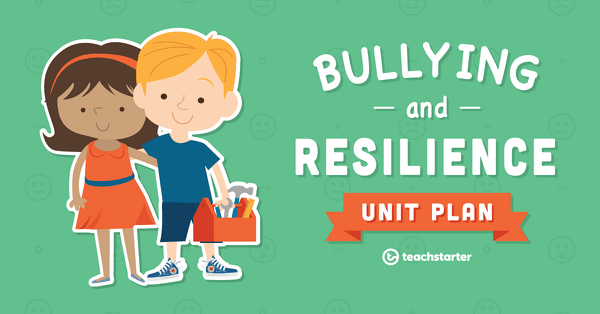
The Resilience Tool Kit
A 60 minute lesson in which students will identify and use the resilience Tool Kit strategies.
- Plus Plan
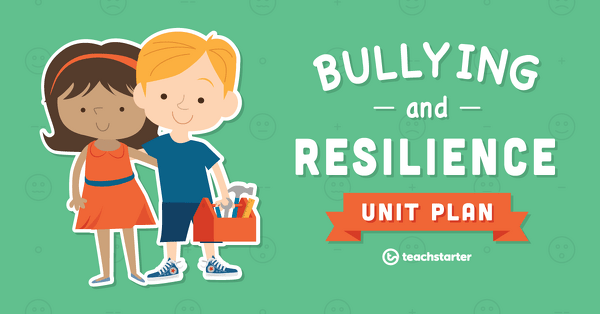
What is Resilience?
A 60 minute lesson in which students will identify and understand emotional resilience.
- Plus Plan
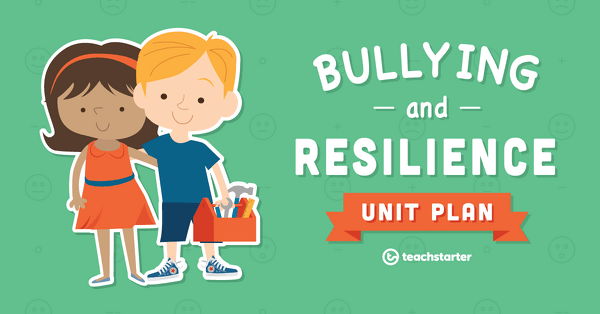
Cyberbullying
A 60 minute lesson in which students will identify what cyberbullying is.
- Plus Plan
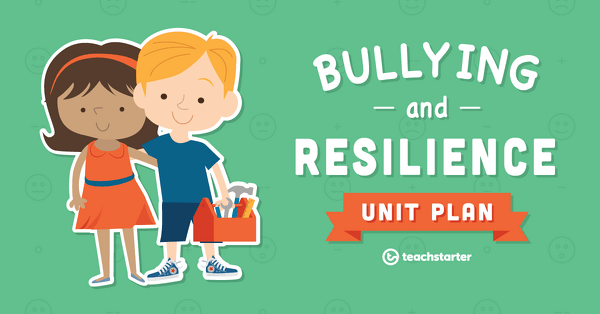
What Bullying is Not
A 60 minute lesson in which students will identify what bullying is not.
- Plus Plan
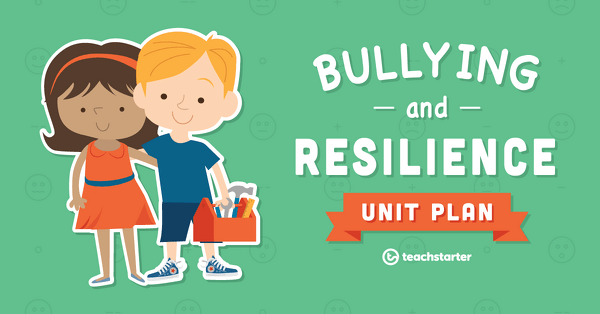
What is Bullying?
A 60 minute lesson in which students will identify the key traits of bullying.
- Plus Plan
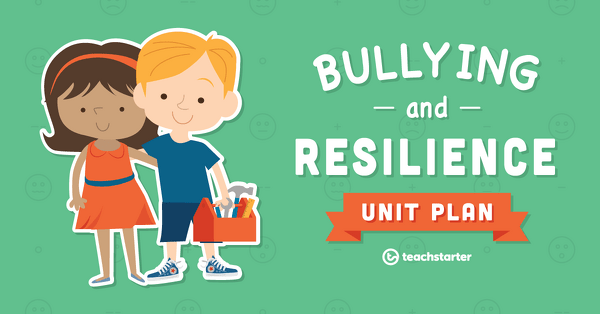
Bullying and Our Emotions
A 60 minute lesson in which students will identify different emotions and how bullying can make a person feel.
-

Creating an Inclusive Classroom | Diversity Heart Art Activity
Are you on the lookout for a fun art activity to teach your kids about diversity? Help create an inclusive classroom with the Diversity Heart art activity.
- Social Awareness Templates
- Social Awareness Posters
- Social Awareness Worksheets
- Social Awareness Games
- Social Awareness for Pre-K
- Social Awareness for Kindergarten
- Social Awareness for 1st Grade
- Social Awareness for 2nd Grade
- Social Awareness for 3rd Grade
- Social Awareness for 4th Grade
- Social Awareness for 5th Grade
- Social Awareness for 6th Grade